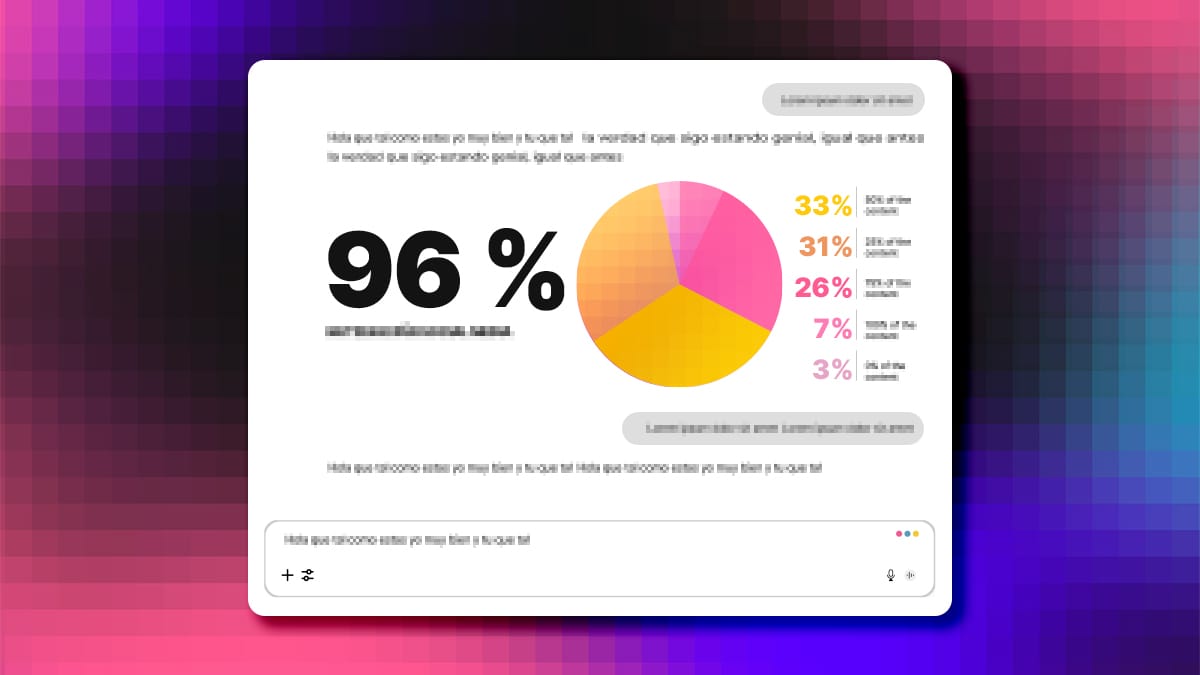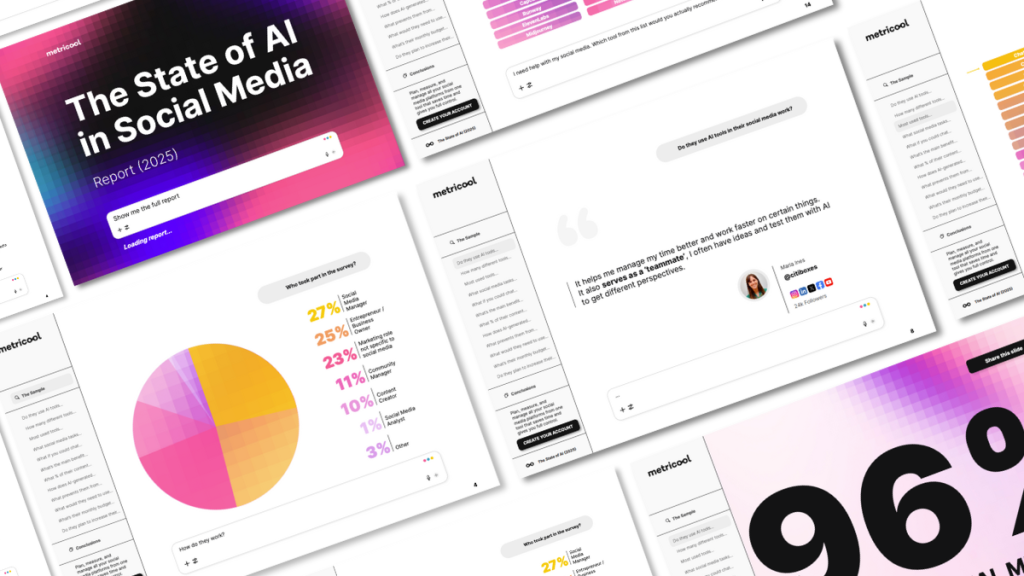How Social Media Professionals Use AI in 2025 [Report]

AI isn’t just the future of social media; it’s the engine driving today’s content, strategy, and daily workflows. If you want a real snapshot of how the industry is using artificial intelligence, this is the report you need.
We’ve surveyed hundreds of social media managers, freelancers, agency folks, and content creators, and discovered that 96% now use AI for social media tasks, and nearly three-quarters rely on it daily. AI has officially gone from “nice-to-have” to a must-have for virtually every social professional.

What are the most popular AI uses in social media?
Everything. Social media professionals use AI to brainstorm post ideas (the top use, at 78%) write captions, adapt content to different channels, design graphics, and even automate repetitive work. AI is no longer just a fancy tool for early adopters.
But it’s not all about speed. The human touch still matters, 45% of social media professionals say they’re cautious about using more AI because of quality concerns. More than a third admit they don’t track the real performance of their AI-generated content; proof that new tech always comes with new questions.
Despite the buzz, the hype, and the extremely high levels of adoption, budgets are conservative: half of the respondents rely only on free AI tools, and nearly two-thirds of social media managers have no plans to increase their AI spending this year. Most are focused on getting creative with what they have, finding value in free or low-cost options.
You’ll also find quotes, real stats, and actionable benchmarks, like:
- 79% say AI lets them create more content, faster.
- 65% use AI for at least half of all their posts.
- Only 3.6% don’t use AI in their social workflow at all.
Want the full details? Download the The State of AI in Social Media 2025 Report now:
Social media marketing isn’t just about posting…
With Metricool, manage your content from start to finish in one place:
Plan your posts, check out what your competitors are doing, track analytics, and create custom reports all from a single dashboard (no jumping between platforms needed).

